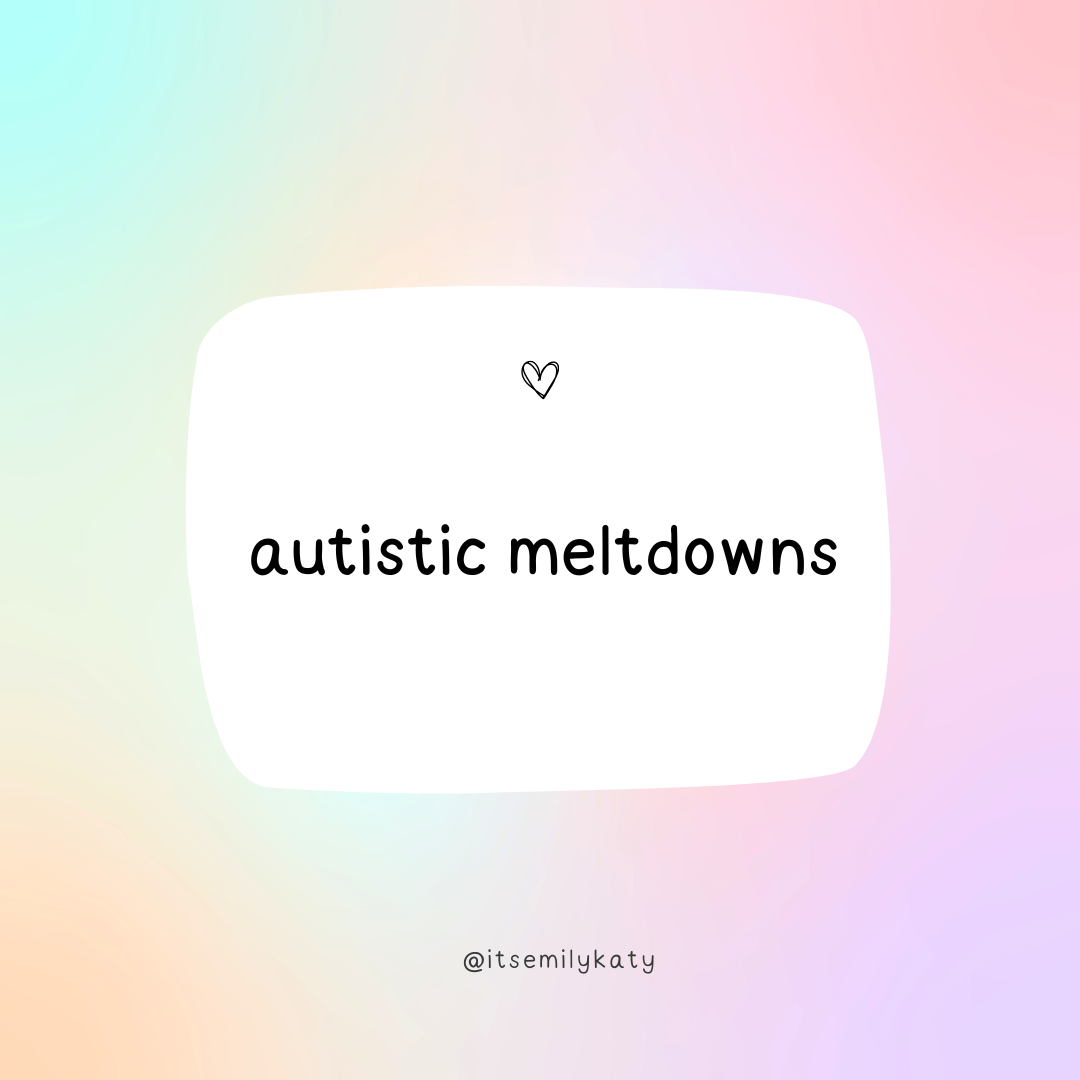Autistic Meltdowns
Autistic meltdowns are very intense involuntary responses to being overwhelmed.
Autistic people present differently during meltdowns. Reactions may be physical (e.g. kicking), emotional (e.g. crying) or verbal (e.g. shouting). Alternatively, they may shut down. It is important to know that meltdowns are not tantrums. The individual may temporarily not feel in control of their behaviour.
Common Triggers Include…
Change in plan or routine
Exhaustion from masking
High demands
Unmet needs
Being unable to express needs
Fear of failure
Feeling unable to meet expectations
Rejection Sensitive Dysphoria
What Could Help You During a Meltdown:
Finding a quiet space
Noise cancelling headphones or earplugs
Having a ‘safe person’ to call or go to who can help you to calm down
Anything special interest related that you can engage with
Calming music or meditation
Weighted blankets
People around you understanding
What Other People Can Do To Help:
Guide you somewhere quiet
Reduce demands as much as possible
Remove any anxiety triggers
Offer you time and space
Validate your emotions
Speak calmly and reassure you
Encourage you to ground themselves
Understand that you may say or do things which you would not usually
After a meltdown it is important to remember that your body has just experienced an intense physical and emotional reaction. Your nervous system has been in overdrive. Adrenaline will be pumping around your body.
You might feel embarrassed or ashamed, but you need to now take care of yourself to avoid burnout. You might do this by:
Having lots of rest and sleep
Fuelling your body with food
Hydrating with water
Refreshing yourself by splashing water on your face
Engaging in your special interest
Identifying the trigger and seeing if you can avoid it next time
Treating yourself with compassion
Remember: Autistic adults have meltdowns too. They can feel incredibly embarrassing and the shame that hits afterwards can be horrible. But it is not your fault. Your brain went into overdrive and your body tried to protect you.
You are loved.









